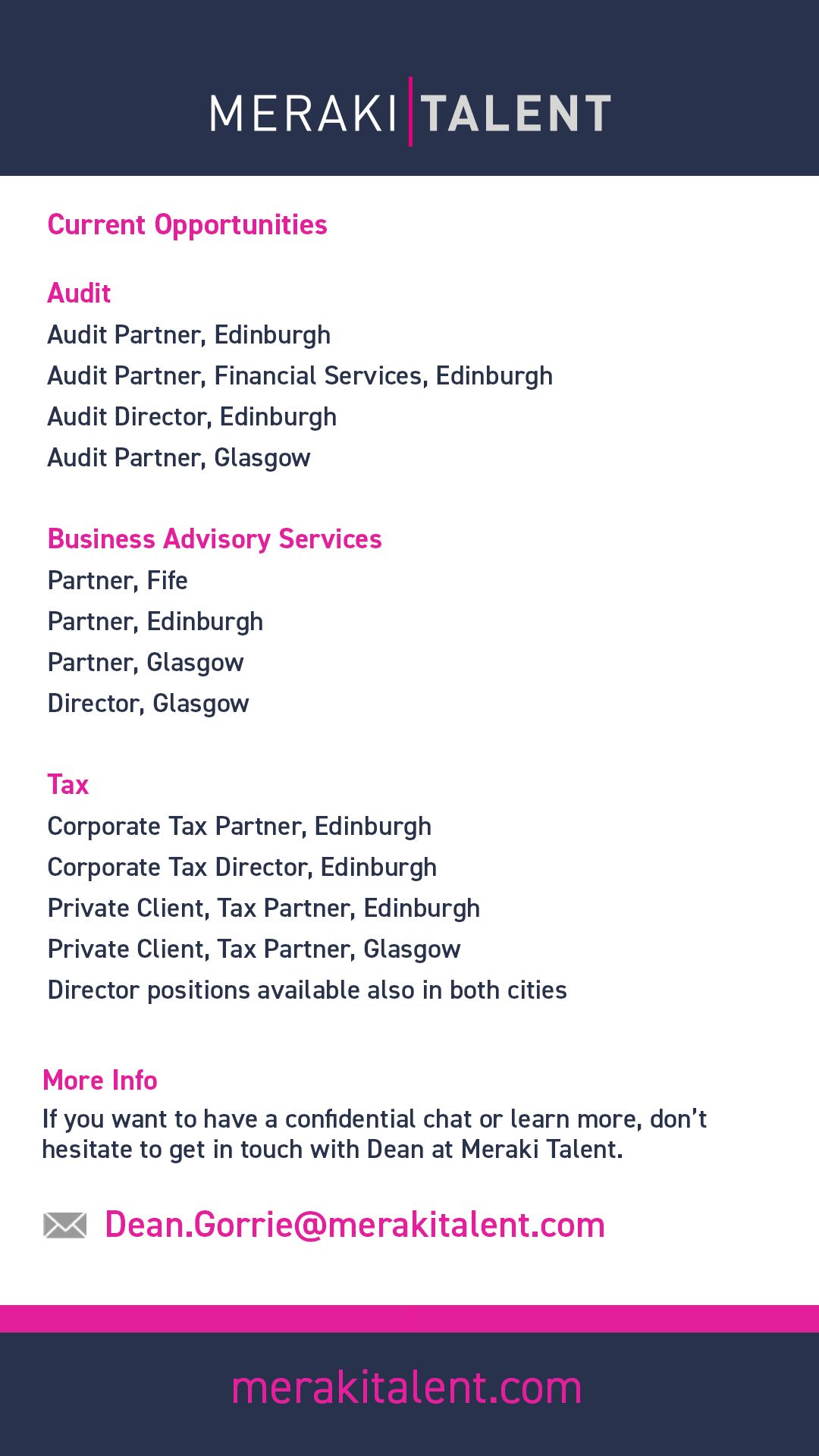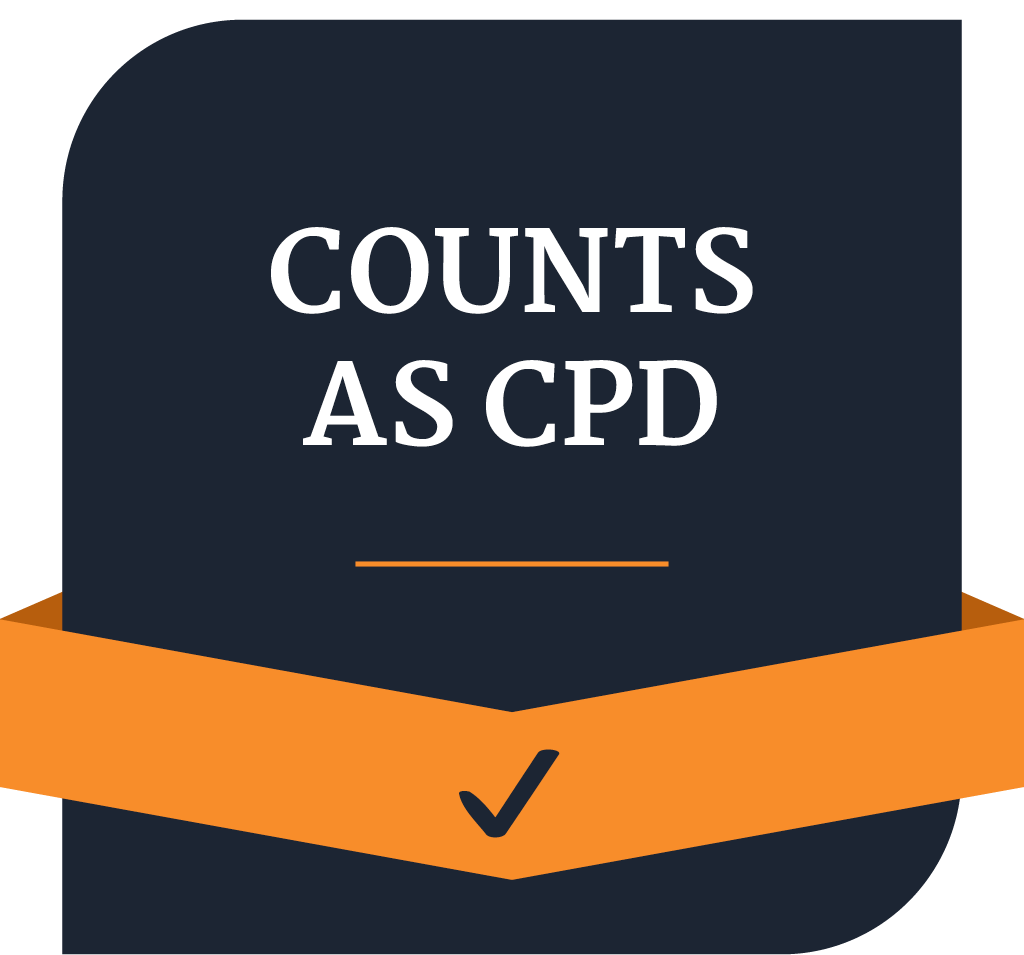Essential insights for FDs

Essential insights for FDs

“It’s a great opportunity to lift up your heads and look over the horizon,” says Claire Glover, Head of Tax Programmes at BPP, of the Finance Directors’ Update course. “We’re here to signpost the most important issues so that you can return to your teams and ask the best questions.”
Glover is enthusiastic about her first appearance leading the course with co-presenter John Moffat CA, an expert in financial reporting. Moffat has been involved in the course for many years and welcomes the return of this event to an in-person class in Edinburgh. “One of the main reasons finance directors find this course so valuable is the opportunity to interact face to face,” he says. “You’re not just sitting through a lecture, you’re discussing challenges, debating solutions and hearing how others are managing the same issues.”
Moffat will help attendees prepare for changes in UK financial reporting emerging through FRS 102, particularly in terms of conforming to revenue recognition and lease accounting regulations. “The course gives you what you need to discuss the five-step model for revenue recognition within your organisation,” says Moffat. “The big change of course is that all leases must now be brought onto the balance sheet. Planning for that shift is essential.”
“OECD Pillar Two is one of those issues that everybody working in tax needs to know about because it’s a huge change”
Claire Glover, BPP
The course also covers the annual review of corporate reporting by the Financial Reporting Council, offering insights into how corporate disclosures are evolving. And fraud prevention, an increasingly important concern for directors, will be explored. “The growing obligations on directors to prevent fraud are becoming a big issue,” says Moffat. “It’s something that finance leaders need to be fully aware of. Enforcement is only going to get tougher.”
Meanwhile, Glover will follow up on some of the tax issues emerging in the wake of last year’s Budget. “The increase in NI rates clearly means that many companies are looking more closely at salary sacrifice schemes,” she says. “And for finance directors, the question will be how to structure those in ways that benefit both the company and employees. For instance, if they’re planning their vehicle fleet, they really need to think about electric vehicles. EVs link in nicely with the NI changes because they’re a really good salary sacrifice option.”
Glover will also cover the recent Supreme Court ruling on off-payroll working (IR35), highlighting how FDs should approach compliance and supplier contracts in light of increased scrutiny on umbrella companies and staffing agencies. And while she stresses that she is an accountant rather than a lawyer, she will look at the impact of employment status changes (such as minimum wage, day one rights and statutory sick qualifications) on the payroll. For any smaller businesses on the course, she is happy to examine personal tax issues that may be relevant, such as CGT, business asset disposal relief and succession planning.
Glover will also investigate recent case law on R&D schemes and capital allowances, and the carbon border adjustment mechanism. The latter is of course already in operation across the EU, affecting UK companies exporting to Europe. But it will be here in full in 2027, and Glover urges those who import from Europe to plan for this change soon.
“We adapt the course according to who is in the room. We make sure that everyone gets maximum value and discovers what’s important to them”
John Moffat CA, JRM Training and Professional Services
International tax issues will also come under the microscope, particularly the OECD Pillar Two (also known as the Global Base Erosion) rules which require a group with consolidated annual revenues of more than €750m (£630m) to pay a minimum 15% tax on their profits in each jurisdiction they operate in. “Even if you are in a smaller business that isn’t having to deal with this yourself, you may have suppliers or customers who are,” says Glover. “And it’s one of those issues that everybody working in tax needs to know about because it’s a huge change.”
Glover and Moffat will also look a little further ahead to issues that are worth keeping an eye on, such as e-invoicing and Making Tax Digital for corporates. “We adapt the course according to who is in the room,” says Moffat. “We make sure that everyone gets maximum value and discovers what’s important to them.”
Finance Directors’ Update is in Edinburgh on 16 May and online on 20 November. Find more information and book here
“It’s a great opportunity to lift up your heads and look over the horizon,” says Claire Glover, Head of Tax Programmes at BPP, of the Finance Directors’ Update course. “We’re here to signpost the most important issues so that you can return to your teams and ask the best questions.”
Glover is enthusiastic about her first appearance leading the course with co-presenter John Moffat CA, an expert in financial reporting. Moffat has been involved in the course for many years and welcomes the return of this particular event to an in-person class in Edinburgh. “One of the main reasons finance directors find this course so valuable is the opportunity to interact face to face,” he says. “You’re not just sitting through a lecture, you’re discussing challenges, debating solutions and hearing how others are managing the same issues.”
Moffat will help attendees to prepare for changes in UK financial reporting emerging through FRS 102, particularly in terms of conforming to revenue recognition and lease accounting regulations. “The course gives you what you need to discuss the five-step model for revenue recognition within your organisation,” says Moffat. “The big change of course is that all leases must now be brought onto the balance sheet. Planning for that shift is essential.”
“OECD Pillar Two is one of those issues that everybody working in tax needs to know about because it’s a huge change”
Claire Glover, BPP
The course also covers the annual review of corporate reporting by the Financial Reporting Council, offering insights into how corporate disclosures are evolving. And fraud prevention, an increasingly important concern for directors, will be explored. “The growing obligations on directors to prevent fraud are becoming a big issue,” says Moffat. “It’s something that finance leaders need to be fully aware of. Enforcement is only going to get tougher.”
Meanwhile, Glover will follow up on some of the tax issues emerging in the wake of last year’s Budget. “The increase in NI rates clearly means that many companies are looking more closely at salary sacrifice schemes,” she says. “And for finance directors, the question will be how to structure those in ways that benefit both the company and employees. For instance, if they’re planning their vehicle fleet, they really need to think about electric vehicles. EVs link in nicely with the NI changes because they’re a really good salary sacrifice option.”
Glover will also cover the recent Supreme Court ruling on off-payroll working (IR35), highlighting how FDs should approach compliance and supplier contracts in light of increased scrutiny on umbrella companies and staffing agencies. And while she stresses that she is an accountant rather than a lawyer, she will look at the impact of employment status changes (such as minimum wage, day one rights and statutory sick pay qualifications) on the payroll. For any smaller businesses on the course, she is happy to examine personal tax issues that may be relevant, such as CGT, business asset disposal relief and succession planning.
Glover will also investigate recent case law on R&D schemes and capital allowances, and the carbon border adjustment mechanism. The latter is of course already in operation across the EU, affecting UK companies exporting to Europe. But it will be here in full in 2027, and Glover urges those who import from Europe to plan for this change soon.
“We adapt the course according to who is in the room. We make sure that everyone gets maximum value and discovers what’s important to them”
John Moffat CA, JRM Training and Professional Services
International tax issues will also come under the microscope, particularly the OECD Pillar Two (also known as the Global Base Erosion) rules which require a group with consolidated annual revenues of more than €750m (£630m) to pay a minimum 15% tax on their profits in each jurisdiction they operate in. “Even if you are in a smaller business that isn’t having to deal with this yourself, you may have suppliers or customers who are,” says Glover. “And it’s one of those issues that everybody working in tax needs to know about because it’s a huge change.”
Glover and Moffat will also look a little further ahead to issues that are worth keeping an eye on, such as e-invoicing and Making Tax Digital for corporates. “We adapt the course according to who is in the room,” says Moffat. “We make sure that everyone gets maximum value and discovers what’s important to them.”
Finance Directors’ Update is in Edinburgh on 16 May and online on 20 November. Find more information and book here
ADVERTISEMENT










